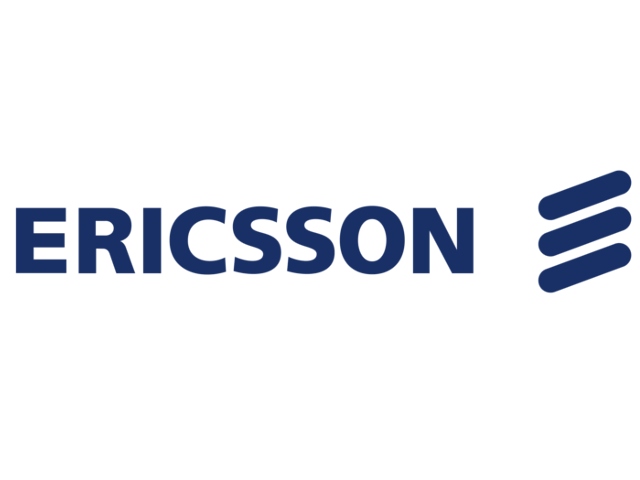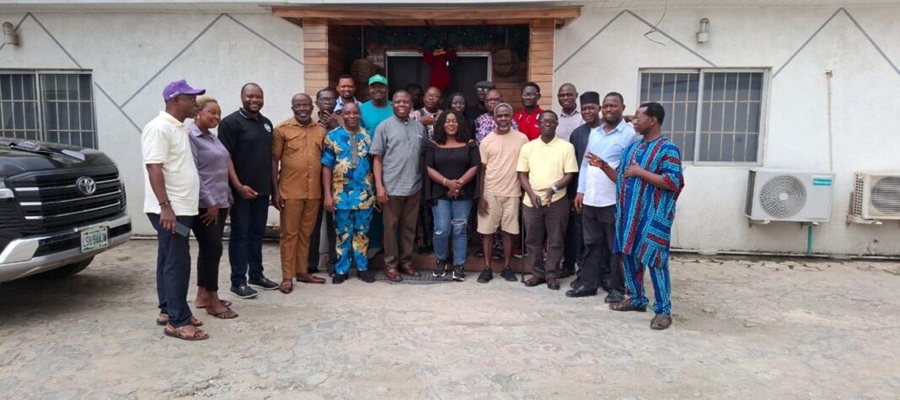Broadcasting
Ericsson Report: 50% TV Viewing Will Be On Mobile In 2020

By peter oluka
Ericsson unveils the eighth edition of its annual ConsumerLab TV and Media report, which details the massive growth in TV and video viewing and the ongoing shift in the way consumers watch content.
Supported by eight years of extensive media insights, Ericsson ConsumerLab predicts that the growth of on-demand viewing will continue to soar through to 2020, making up almost half of total viewing.
By the report, 50 percent of all TV and video viewing will take place on a mobile screen (tablets, smartphones and laptops), an increase of 85 percent since 2010, with the smartphone alone accounting for almost one quarter (an increase of nearly 160 percent since 2010).
Additionally, VR will be on the road to becoming mainstream, with 1 in 3 consumers becoming VR users by 2020.
According to the seventh edition of the annual ConsumerLab TV & Media Report released in 2016, 48% of all active viewing in South Africa was on-demand. Consumers spend most of their viewing time watching downloaded TV and video content, followed by streamed on-demand content, TV series and movies, as well as recorded TV and movies.
Live and Linear TV and video viewing was fueled by TV series and movies, while live sports only made up 6% of the total weekly active viewing time.
The average South African TV viewer will spend 1,1 years of their life searching the TV guide for something to watch. When it comes to using multiple on-demand services across several devices, millennials are the most interested group at 46 percent, while 58 percent of South Africans showed the highest interest levels for such capabilities.
Anders Erlandsson, Senior Advisor, Ericsson ConsumerLab, said: “We can see that consumers are not only watching more video but also changing how and when they do so.
“This is also shown through the continued growth of mobile viewing, which has been a booming trend since 2010. This year also marks the first time that we have explored the level of consumer interest in VR in conjunction with media consumption, and the findings have been fascinating. VR has the potential to bring together people from all over the world and create deeper, more personalized, and more complementary media experiences. As consumer expectations for on-demand, mobile and immersive viewing continues to increase, the TV and media industry must focus on delivering highly personalized services in the very best possible quality available.”
TV and video viewing is on the rise; but how, when and where we watch content is changing
Time spent watching TV and video content has reached an all-time high of 30 hours a week, including active viewing of scheduled linear TV, live and on-demand internet services, downloaded and recorded content, as well as DVD and Blu-ray.
However, close to 60 percent of viewers now prefer on-demand viewing over scheduled linear TV viewing, an increase of around 50 percent since 2010.
The average number of used on-demand services has increased from 1.6 in 2012 to 3.8 services in 2017 per person; 2 in 5 consumers already pay for on-demand TV and video services today and nearly a third (32 percent) say they will increase their on-demand spending in the next 6-12 months.
Portability is also becoming increasingly important factor, with more than a third of consumers wanting access to content when abroad.
Smartphone viewing also continues to gain ground; approximately 70 percent of consumers now watch videos on a smartphone – double the amount from 2012 – making up a fifth of total TV and video viewing.
16-19-year-olds watch the most content each week (33 hours), an increase of almost 10 hours a week since 2010.
However, more than half of this demographic spend their time watching content on-demand, with more than 60 percent of their TV and video viewing hours spent on a mobile device screen.
Content discovery challenges persist
The findings also show that while consumers have more access to TV and video services than ever before, the average time spent on searching for content has increased to almost one hour per day, an increase of 13 percent since last year.
In fact, 1 in 8 consumers believe that they will get lost in the vast amount of available content in the future.
With the user experience becoming ever more fragmented, 6 in 10 consumers now rank content discovery as “very important” when subscribing to a new service, while 70 percent want ‘universal search for all TV and video’.
Experiences matter
The social and immersive quality of VR technology is helping to add a new and valuable dimension to the viewing experience.
With a third of consumers projected to be VR users by 2020, the technology is expected to play an essential role in the future of TV and video.
However, if consumer interest in VR is to increase, several things will need to change. Close to 55 percent of consumers planning to get VR devices would prefer it if the headsets were cheaper, and almost half think there should be more immersive content available.
A third would be more interested in VR if they could get a VR bundle from their TV and video provider.
Consumers also value high quality viewing experiences as well as immersive experiences. Close to a quarter of the surveyed consumers say they already have access to a 4K UHD TV screen and another third plan to get one.
Broadcasting
Tim Akano Recounts 20-Year Growth, Media Support at NITRA End-of-Year Meet

Mr. Tim Akano, New Horizons Chief Executive Officer, took centre stage at the Nigerian Information Technology Reporters’ Association (NITRA) annual end-of-year meeting on Thursday, December 18, 2025, recounting the company’s remarkable growth and reaffirming free IT training for journalists.

Tim Akano, New Horizons Chief Executive Officer, in a group photograph with NITRA Members
Speaking directly to IT media members at the company’s training facility in Lagos, Akano acknowledged the critical role journalists played in supporting New Horizons during its formative years two decades ago.
He detailed how the firm evolved from a handful of staff to one of Africa’s leading ICT skills training organisations, now employing about 500 staff across multiple training centres nationwide.
Akano Spotlights Youth Training, University Partnerships
Akano highlighted that New Horizons has trained over 500,000 youths, particularly tertiary institution students, equipping them with practical IT skills essential for Nigeria’s digital economy.
He announced recent partnerships with universities, including a new agreement with Afe Babalola University, to scale hands-on training programmes for students.
“This growth would not have been possible without the media’s support in documenting our journey,” Akano stated, pledging continued free IT skills training for media members to remain competitive in the evolving digital landscape.
Reciprocal Support Defines Long-Standing Partnership
The venue hosting the NITRA meeting underscored Akano’s generosity; NITRA Secretary Chidiebere Nwankwo secured the free facility after contacting him—a gesture consistent with New Horizons hosting multiple association events and training IT journalists since its inception 20 years ago.
Participants shared personal testimonies of Akano’s support, including veteran journalist Aaron Ukodie, whose daughter—an Accounting graduate from the University of Johannesburg—received NYSC placement and IT scholarship at New Horizons.
The Guardian’s Yemi Adeyemi recounted Akano accommodating his editor’s child for mandatory IT training after other firms declined.
Members praised Akano’s commitment to human capital development as evidence of deep appreciation for the media community that chronicled New Horizons’ success over two decades.
Broadcasting
NIMC rolls out Pre-Enrolment Portal for seamless NIN registration

National Identity Management Commission (NIMC) has launched the NIMC Pre-Enrolment Portal to revolutionise the National Identification Number (NIN) enrolment process, enabling applicants within Nigeria and in the Diaspora to capture biodata online prior to biometric verification at enrolment centres.

NIMC
Accessible via penrol.nimc.gov.ng, the platform allows users to fill enrolment forms, schedule appointments, upload supporting documents securely, and manage personal details directly, thereby slashing congestion, minimising wait times, boosting data accuracy and enhancing overall service efficiency at centres nationwide.
NIMC Director-General and CEO, Engr. (Dr) Abisoye Coker-Odusote, spearheaded the initiative as part of the Commission’s technology-driven strategy to fortify institutional performance, aligning with President Bola Ahmed Tinubu’s Renewed Hope Agenda that emphasises digital transformation, efficient public service delivery and inclusive national development.
Dr Kayode Adegoke, Head of Corporate Communications, highlighted key benefits including simplified biodata handling, confidential data protection through robust security measures, reduced physical centre visits and heightened operational effectiveness, urging all prospective enrollees to adopt the portal for a faster, citizen-friendly experience.[conversation_history]
The move underscores NIMC’s mandate under the NIMC Act No. 23 of 2007 to manage the National Identity Database, issue NINs and foster a reliable digital identity ecosystem vital for national planning, with users advised to complete pre-enrolment online before heading to selected centres for biometrics.
Broadcasting
MultiChoice Talent Factory Calls for Entries Into Fully Funded Film Training Programme

MultiChoice Talent Factory (MTF), a Pan-African film and television training institution, has announced the opening of applications for its 2026 intake.

MultiChoice
The fully funded programme is open to African graduates aspiring to become directors, filmmakers, scriptwriters, producers and storytellers.
According to MultiChoice, the nine-month accredited curriculum combines online learning with intensive in-person training, and is designed to balance theoretical knowledge with practical immersion.
MTF academies are located in Kenya, Nigeria and Zambia, and serve aspiring filmmakers from 14 African countries. Since its inception in 2018, the initiative has trained 296 filmmakers, with graduates producing more than 42 movies aired on DStv, GOtv and Showmax platforms.
Organisers said alumni of the programme have gone on to establish over 50 production companies, while many continue to work within the MultiChoice ecosystem.
Graduates have also won accolades at the Africa Magic Viewers’ Choice Awards, Kalasha Awards, Uganda Film Festival and Women in Film Awards.
Applications for the 2026 intake close on Feb. 27, 2026. Interested candidates can visit https://apo-opa.co/3XW53oE for programme requirements.

 E-Financial2 days ago
E-Financial2 days agoBanks quietly move to enforce new ₦50 transfer levy from Jan. 1

 Telecom3 days ago
Telecom3 days agoNigeria’s Internet Usage Hits 1.24m Terabytes – NCC

 General News2 days ago
General News2 days agoEcobank Guarantees Seamless Digital Banking Services Throughout the Christmas and Year-End Period

 News1 day ago
News1 day agoHow Moniepoint’s Founders, Tosin Eniolorunda and Felix Ike are Redefining African Tech and Finance























